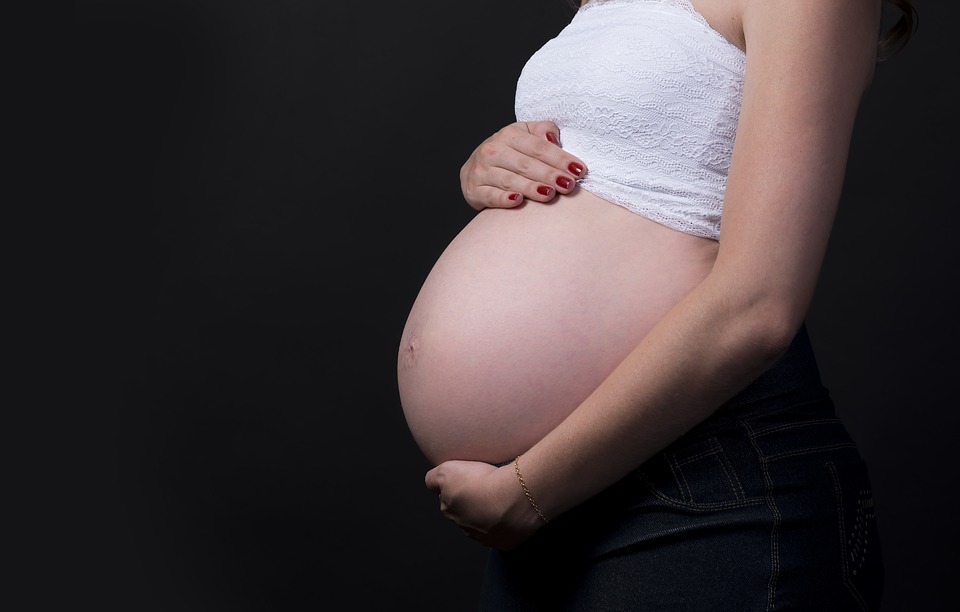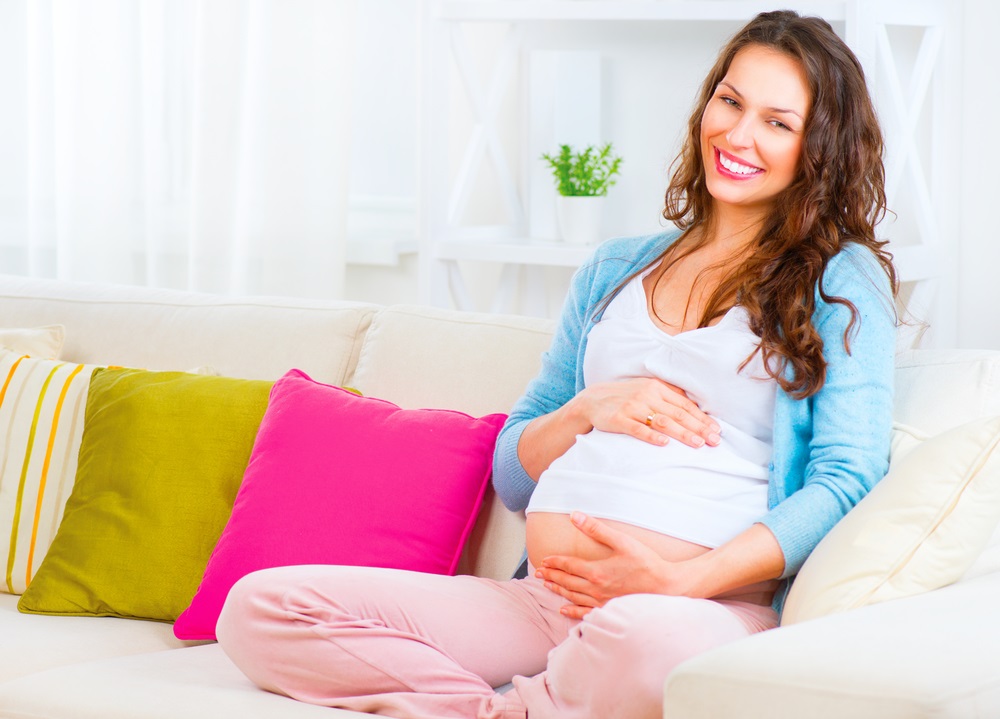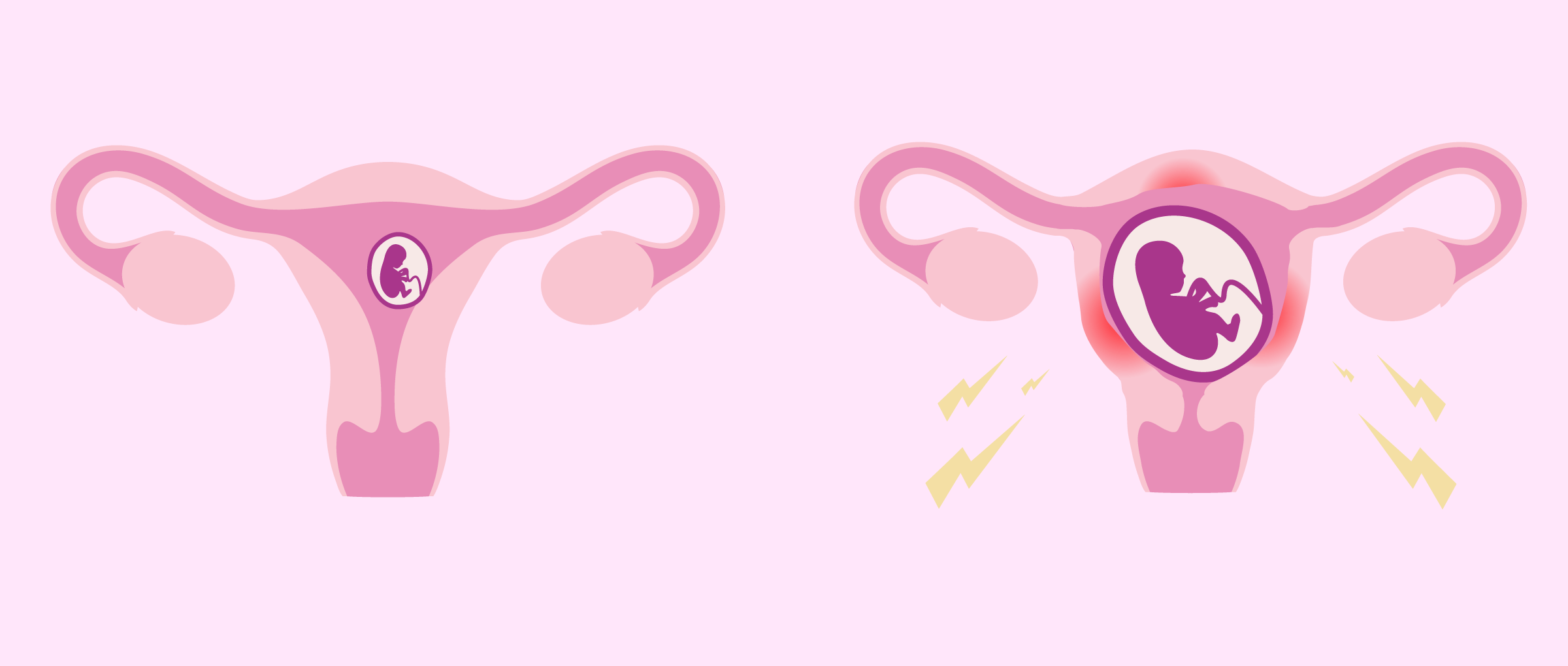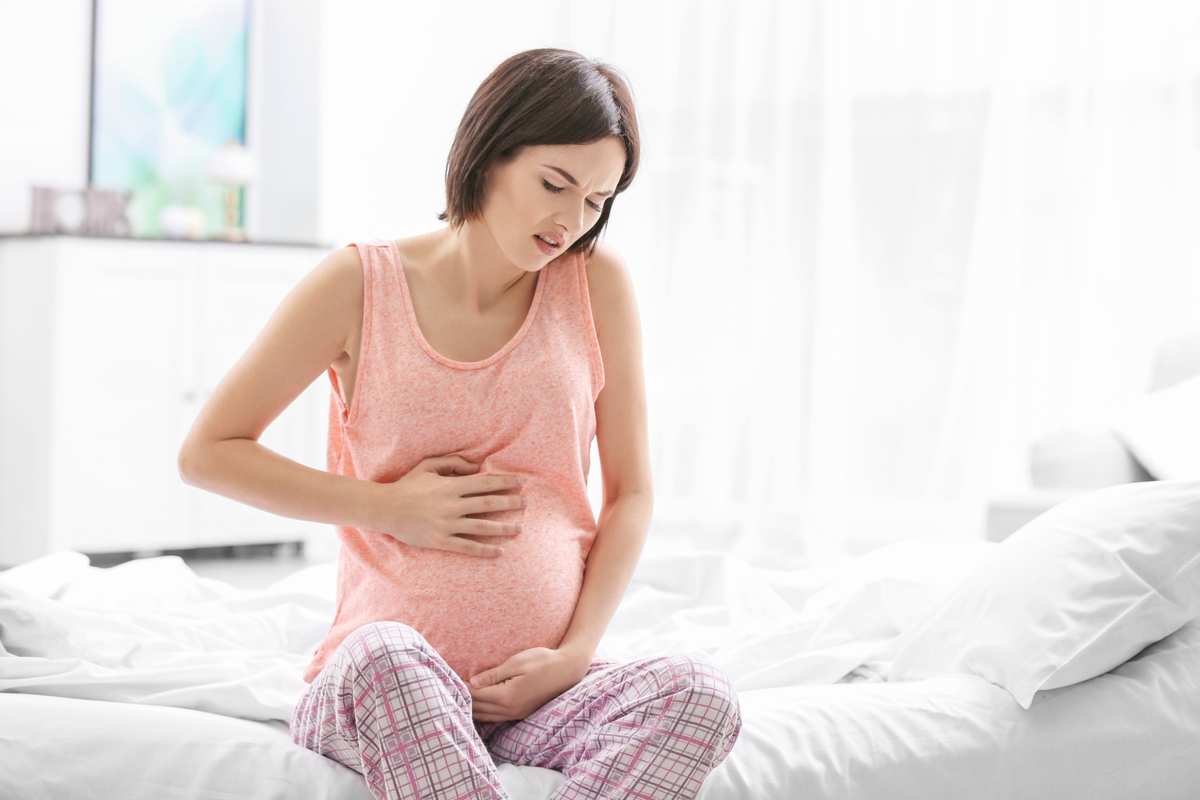Are they normal? cramps in the belly?. In this article we will explain the symptoms associated with menstruation as well as the significant changes that we experience during pregnancy and the importance that we must give to these symptoms.

Why do they give cramps in the lower abdomen?
First of all, I will tell you that many women suffer from painful periods, often throbbing or cramping in the lower abdomen. Generally the wall of the uterus will undergo mild to moderate contractions, which tend to be a little stronger when menstruation occurs.
Perfectly, we can include cramps in the belly as normal symptoms of menstruation, whether they occur before, during or after it; but we must be alert in case these do not manifest themselves under normal circumstances, since they could be inflammations, changes, tumors, among others, which, if treated in time, would not imply unfortunate consequences.
These discomforts can accompany you every month and depending on each case, they will be mild or more intense. Therefore, they can be considered normal if each month you follow a normal pattern, without major alteration or increase.
If the pains become very intense and suddenly, you will be facing a change in your menstrual pattern and you must pay due attention to avoid any complications.
Some recommendations
It is highly recommended, to relieve the onslaught of unpleasant menstrual pain, exercise, yoga and in other cases the doctor may prescribe the use of anti-inflammatories or contraceptives, the latter with the intention of thinning the endometrium and reducing pain.
On the other hand, it is highly unlikely that lower abdominal cramps are an indication of pregnancy, since if you are pregnant, the symptoms are generally imperceptible and will only be corroborated when you go to a specialist.
At first, knowing that you are in a state of pregnancy, it is absolutely normal to experience a series of changes in the body, among which we can count: changes in mood, nausea, frequent urination and even very tired and sleepy.
All these symptoms will accompany you throughout your pregnancy, it is likely that you will feel them with greater intensity during the first three months, since your body adapts to the new member that is now growing inside you and later when you exceed the fifth month of gestation.
In the same way, throughout the process of changes that you will experience, you will have a series of symptoms to which you must pay the necessary attention, since although it is true, many of them could constitute normal ailments due to your state, it is no less true that there are some that, if they were an anomaly and were treated on time, would not generate major consequences.
In this article, we will mainly talk about the belly cramps during pregnancy, the different reasons why they can occur either during pregnancy or after childbirth.
Cramps in the belly during pregnancy
As we already mentioned, you must take special care during the first trimester of pregnancy and then in the last trimester and of course without neglecting yourself throughout the pregnancy, which in gynecology and obstetrics is called a state of pregnancy, because you will experience both an increase and decrease in different values, which is part of the physiological process and the development of the fetus inside your uterus.
During pregnancy you will also experience a series of changes and discomforts, which certainly indicate that you are adapting to your new state, the body will be carrying out its normal adaptation process to give space to the baby inside you.
The ligaments of your uterus
You could have cramps in the belly, which is mainly due to the alteration suffered by the round ligaments. These ligaments are muscular bands that surround your uterus and can cause brief, sharp pain in the lower abdomen.
It is possible that any movement, whether changing position and even the most normal such as sneezing or coughing, could cause the rapid extension and subsequent contraction of the aforementioned ligaments, normally generating those cramps in the belly, but don't worry, their duration will be few seconds.
These cramps are usually uncomfortable but in no way worrying, since as the baby grows and develops, the ligaments will tend to stretch. Obviously, as time passes and the pregnancy progresses, the uterus will increase in size and continue to stretch the ligaments, which of course will produce the uncomfortable cramps in the belly during the gestation period.
In the same way, we must bear in mind that your daily life must be adapted to your new state, since although it is true that following the instructions of your obstetrician, maintaining a healthy life, you can feel cramps in the belly several times a day, especially when having sex and experiencing an orgasm, which we insist, is nothing to be alarmed about.
Pay attention to cramps during pregnancy
But like all excesses, and due to the fact that you are pregnant, as we have already explained, it is necessary to take into account the continuity and intensity of these cramps. Only you know your body in depth, consequently you are fully capable of distinguishing whether they increase or decrease both in intensity and in repetitions, so according to these variants, it will determine the opportunity to go to your obstetrician.
Now, is it normal to have stomach cramps during pregnancy due to the stretching of the ligaments, which will be accentuated as the fetus grows and settles in your uterus, but it is also important to take into account other causes.
Other Causes of Cramps in the Belly
Cramps in the belly during pregnancy, which are accentuated both in quantity and intensity, deserve special attention and without hesitation at any time. You should consult with your treating doctor, in order to avoid unexpected consequences and treat the situation from the beginning.
You could present gas, caused by some type of food that due to your condition generates such an anomaly and makes it difficult for you to digest them, gas can cause cramps in the belly during pregnancy. Similarly, poor digestion can be the cause of cramps, since you will also be experiencing a slower digestion process.
It is also very normal during pregnancy for you to experience constipation, which is closely associated with the intake of iron that your obstetrician has prescribed and which is very important since, during pregnancy, as we have already explained, you increase some levels and decrease others. like iron for example, so you will require supplements that provide it.
Situations that warrant consulting a specialist
- Spontaneous abortion, cases in which abdominal cramps are a clear alarm signal.
- Ectopic pregnancy, this occurs in cases where the fertilized egg develops outside the uterus. That is, this egg implants and grows outside the cavity of the uterus, usually in the fallopian tubes.
- Placental abruption, which occurs when the placenta, which is the organ that supplies oxygen, nourishes and eliminates the baby's waste, separates from the internal walls of the uterus, which generates as an immediate consequence that the baby does not have oxygen or can feed. This situation could perfectly manifest itself, through a continuous and very painful abdominal cramp.
- Urinary tract infections, which are usually very delicate during pregnancy if they are not attacked in time, since these in themselves are the ones that can cause cramps in the belly during pregnancy.
Cramps after childbirth
Finally, we will also detail that these cramps in the belly can also occur after childbirth. Due to the significant stretching of the abdominal muscles during pregnancy, the pregnancy will be dilated and it will take approximately forty days for the uterus to return to its normal size.
Consequently, during the first days after childbirth, we can suffer from cramps in the belly that generally contribute to reducing excessive bleeding, because they fulfill the function of compressing the blood vessels of the uterus.
These postpartum cramps are better known as pains, which can be more or less painful depending on the births you have had, that is how, if you are a first-timer, these cramps will pass as a normal menstrual pain, but when you have more children can become stronger.
It is not at all recommended to inhibit these cramps, since no matter how unpleasant they may be, they have a positive effect. To avoid sacred and put your life at risk, it is a natural process of the organism that pursues the objective of taking you back to the state in which we found you before pregnancy, consequently, you should not alter said process.
What to do to improve cramps after childbirth?
Generally, the dreaded cramps will subside after about six or seven days after delivery. However, it is recommended that you follow some tips, below we detail:
- Massages in the lower abdomen are recommended, to try in some way to relieve ailments.
- Your obstetrician may prescribe some type of analgesic, this in case the cramps are very painful.
- It could result in frequent urination, which will be very easy to do, since you must stay very hydrated by the natural process of breastfeeding, so your bladder will fill quickly and the more you urinate, you will avoid having a full bladder, preventing the uterus shrink as it should.
- If it is a vaginal delivery, ice packs are also recommended, which we must apply all day during the first twenty-four hours, with this you will greatly reduce the cramps and relieve the edema in the perineum and the lips of being the case.
It is important to note that after childbirth, when you breastfeed your baby, you will produce a hormone called oxytocin, also known as the birth hormone, which helps your milk come out. This hormone to some extent may be the cause of these cramps.
If you want to know more about care for your health and well-being, we invite you to read our article on the food for memory, where you will find a list of foods with their benefits that will help you have a healthy and active memory.


